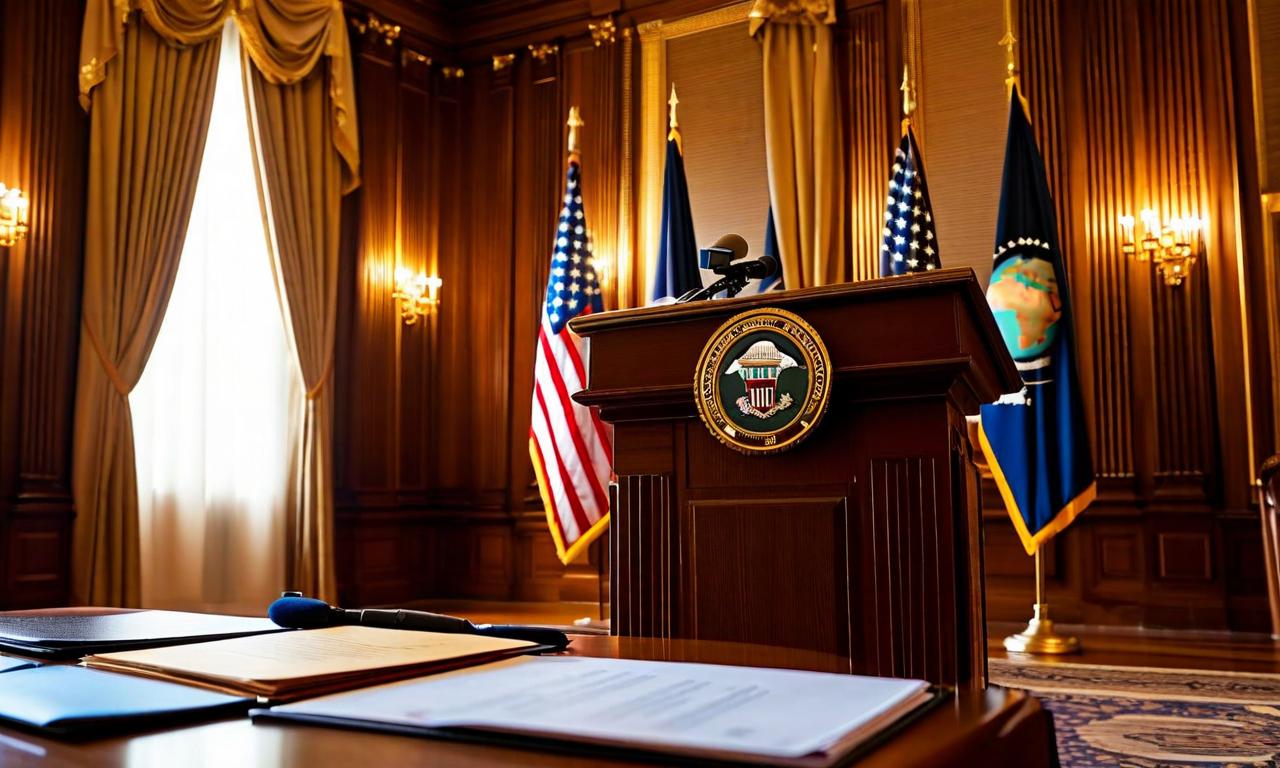Trump Claims Preventing India-Pakistan Nuclear War and Unveils Plan to Slash Drug Prices
Donald Trump has announced a plan to significantly reduce drug prices in the United States. The plan includes implementing a most-favored-nation pricing model for Medicaid patients, requiring pharmaceutical companies to offer their lowest global prices. Trump has given major pharmaceutical companies until September 29 to comply. The plan also proposes an escalating tariff strategy on pharmaceutical imports, starting with small tariffs and potentially increasing to 250% in subsequent years. This strategy aims to incentivize domestic pharmaceutical production and reshape the global supply chain for medications.

*this image is generated using AI for illustrative purposes only.
Former President Donald Trump has made bold claims about his international influence and announced a new initiative to reduce drug prices in the United States.
Preventing Nuclear Conflict
Trump claimed he stopped seven wars globally, including preventing a nuclear conflict between India and Pakistan. He stated he used tariffs and trade leverage, threatening 100% tariffs and trade cessation, giving the countries 24 hours to settle their dispute. Trump mentioned that seven jets were shot down during the conflict but did not specify which country's aircraft. He has repeated this claim over 40 times since announcing a ceasefire agreement.
However, India maintains the ceasefire was reached through direct military talks between the two countries. Prime Minister Modi stated no foreign leader asked India to stop Operation Sindoor, and External Affairs Minister Jaishankar denied any third-party intervention in the ceasefire.
Drug Price Reduction Plan
In a separate announcement, Trump unveiled an ambitious plan to dramatically reduce drug prices and reshape the pharmaceutical landscape in the United States. The plan targets a 1,400% to 1,500% reduction in drug prices, alongside a proposal for escalating tariffs on pharmaceutical imports.
Most-Favored-Nation Pricing Model
Trump's plan centers on implementing a most-favored-nation pricing model for Medicaid patients. This approach would require pharmaceutical companies to offer their lowest global prices to U.S. Medicaid recipients, potentially leading to significant cost savings.
Deadline for Pharmaceutical Companies
Trump has issued letters to major pharmaceutical companies, including Johnson & Johnson, Pfizer, AstraZeneca, Bristol Myers, GSK, Merck, Novartis, Roche, and Sanofi. These companies have been given until September 29 to comply with the most-favored-nation pricing requirement for Medicaid patients.
Escalating Tariff Strategy
The plan also outlines a progressive tariff strategy for pharmaceutical imports:
- Initial implementation of relatively small tariffs
- Escalation to 150% within the first year
- Potential increase to 250% in subsequent years
This strategy aims to incentivize domestic pharmaceutical production and reshape the global supply chain for medications and active pharmaceutical ingredients.
The proposed measures, if implemented, could have far-reaching effects on the pharmaceutical industry, potentially impacting drug pricing models, international trade, domestic manufacturing, research and development investments, and the global competitiveness of U.S. pharma companies.

























